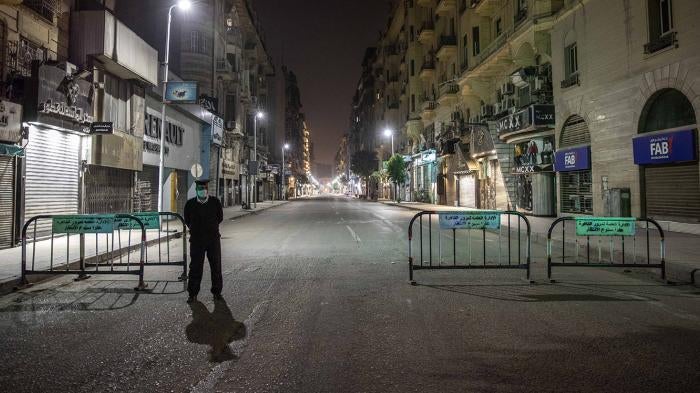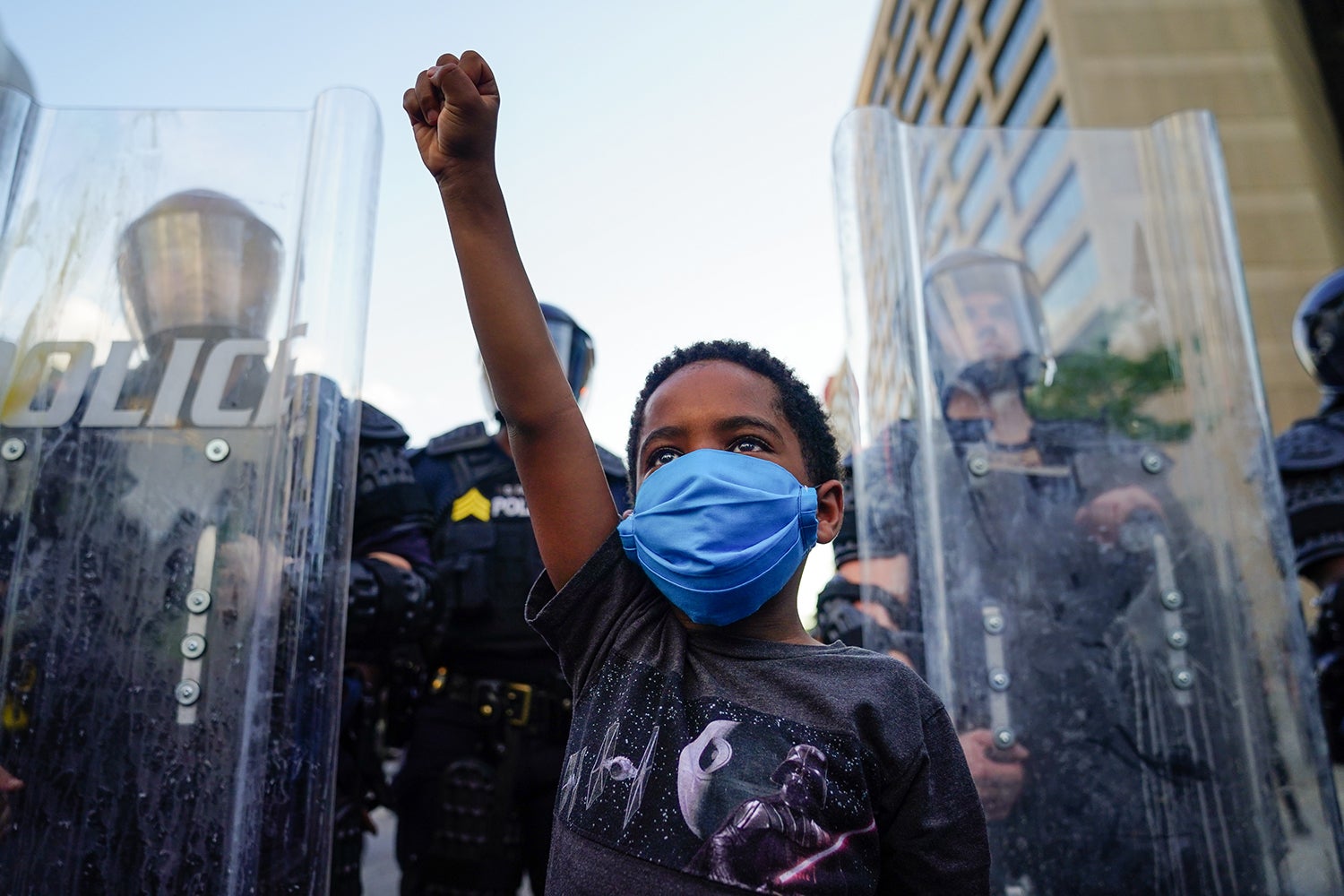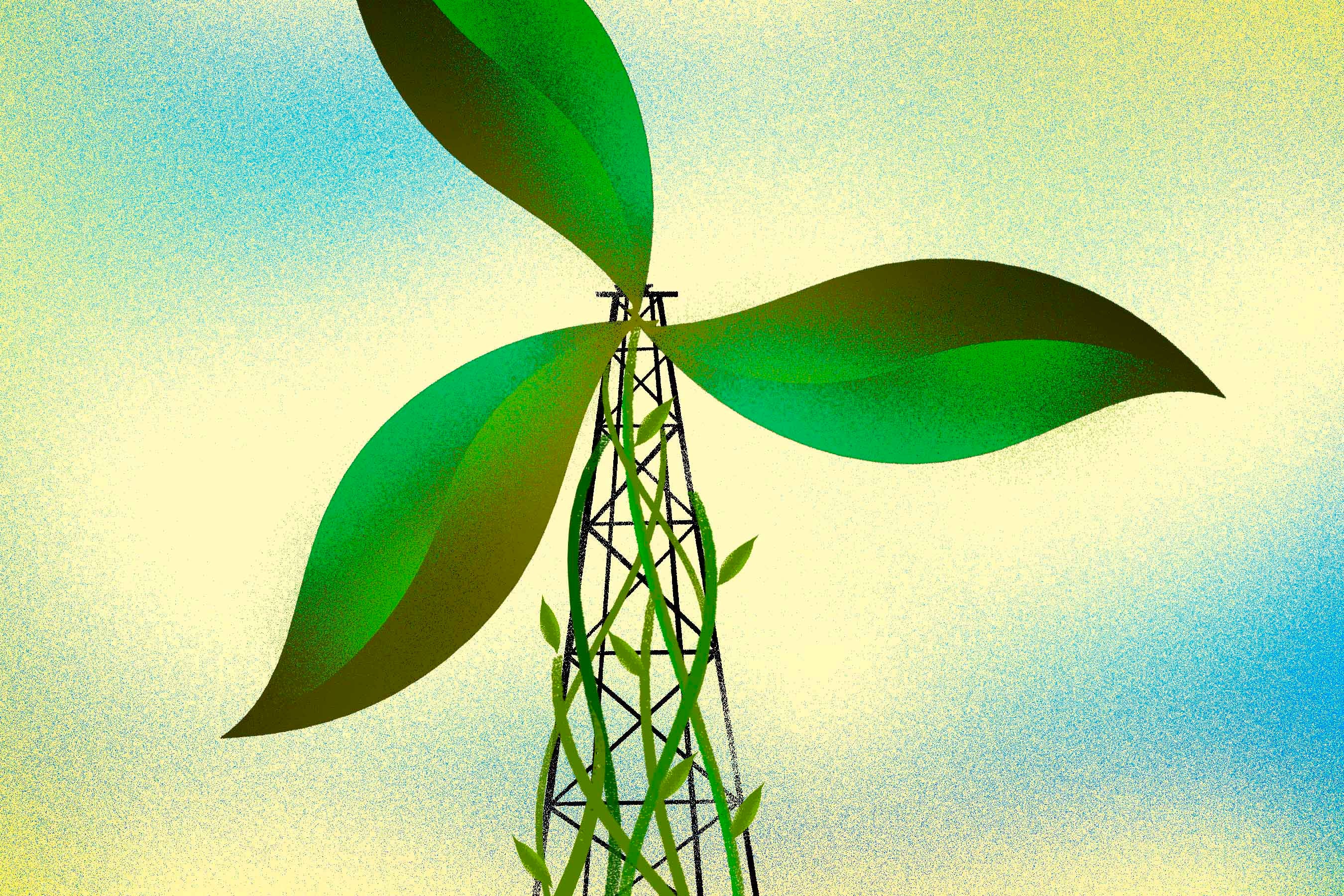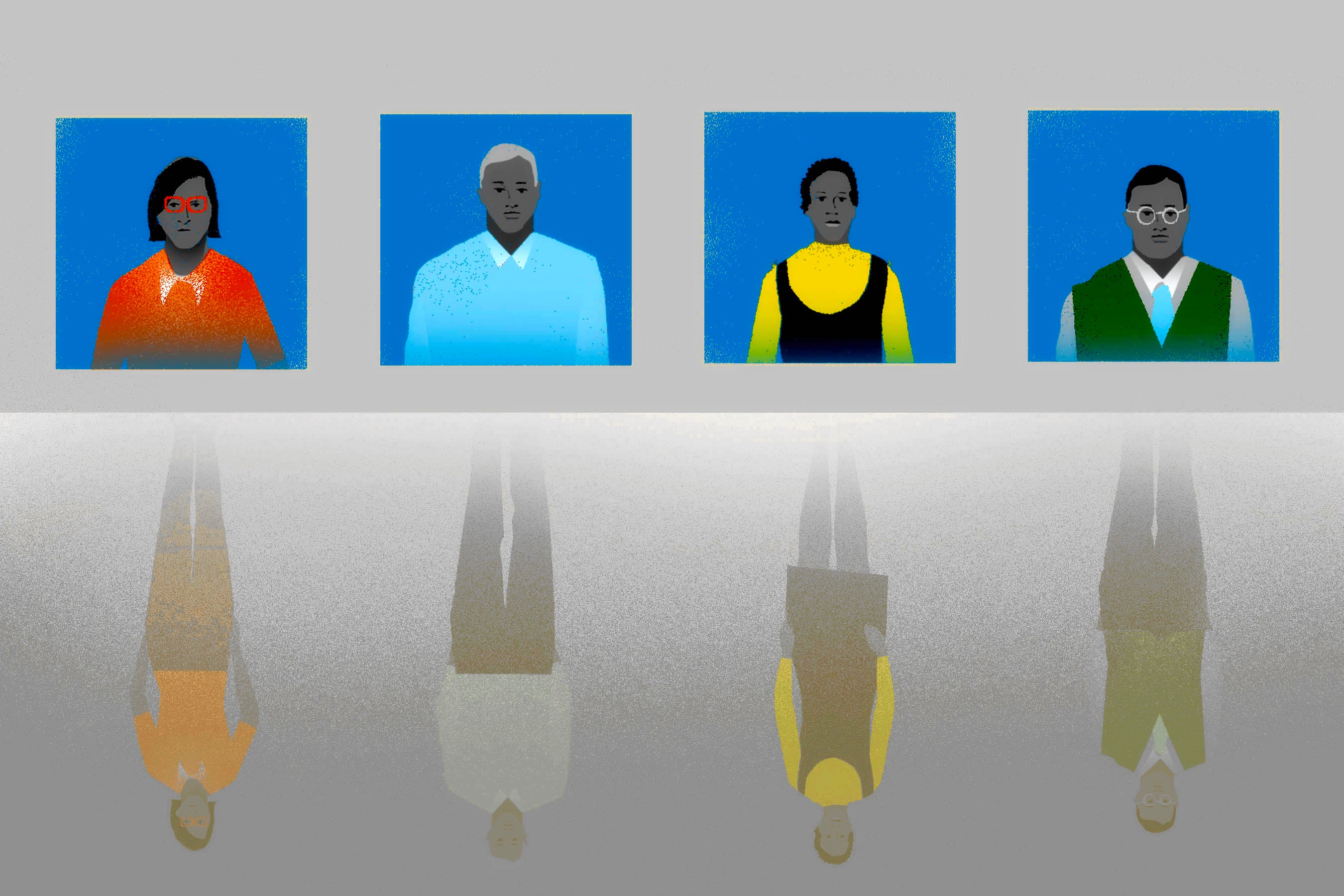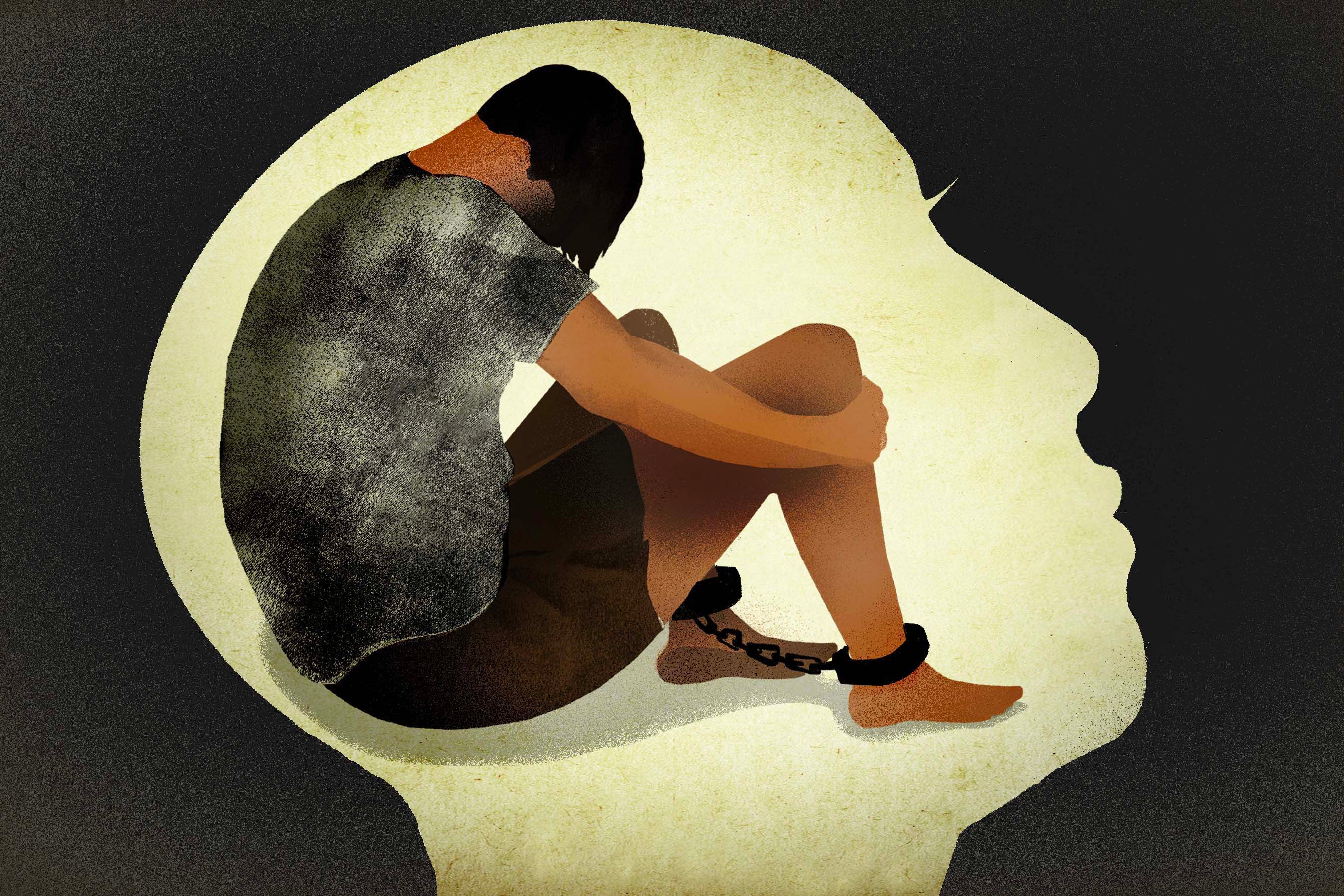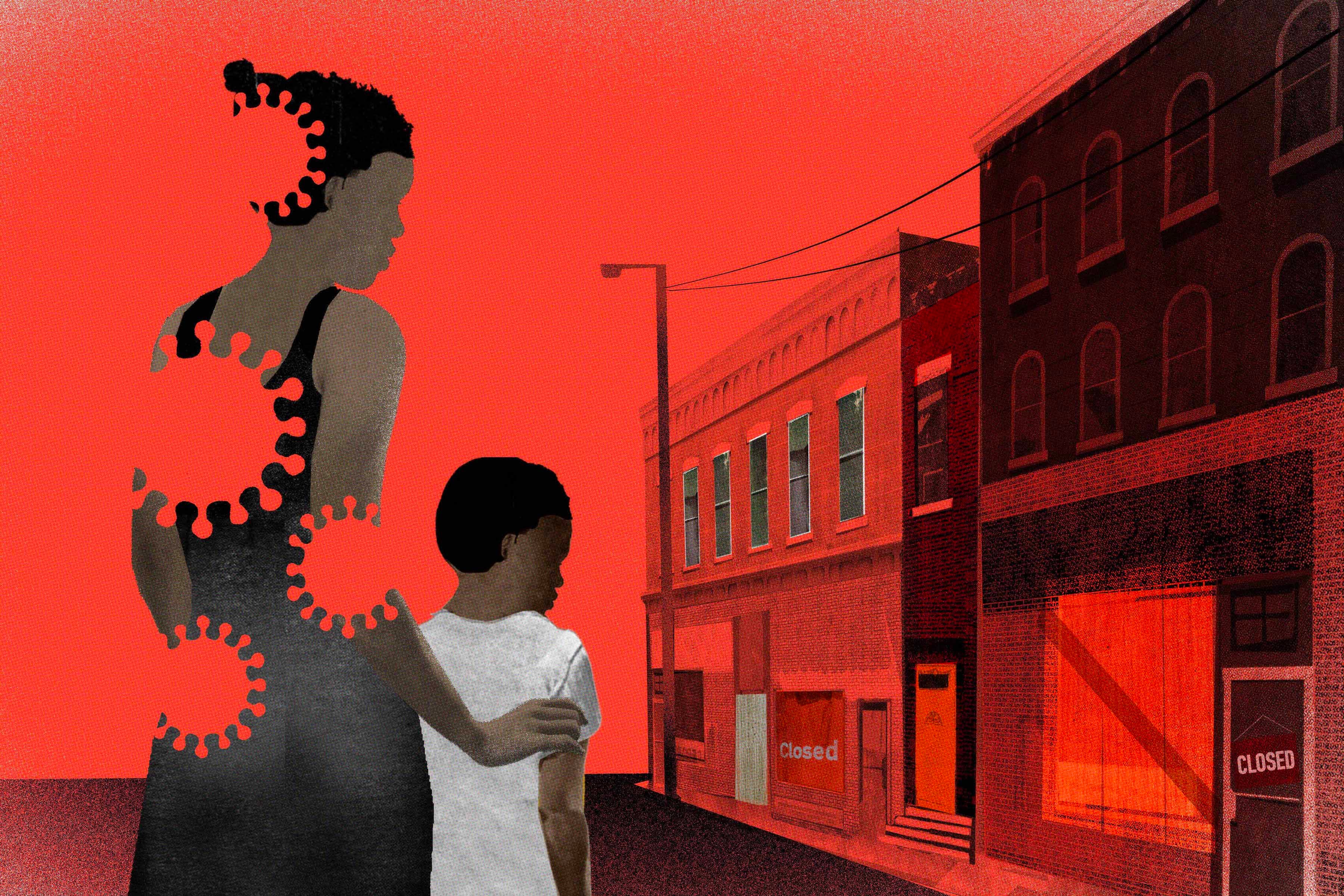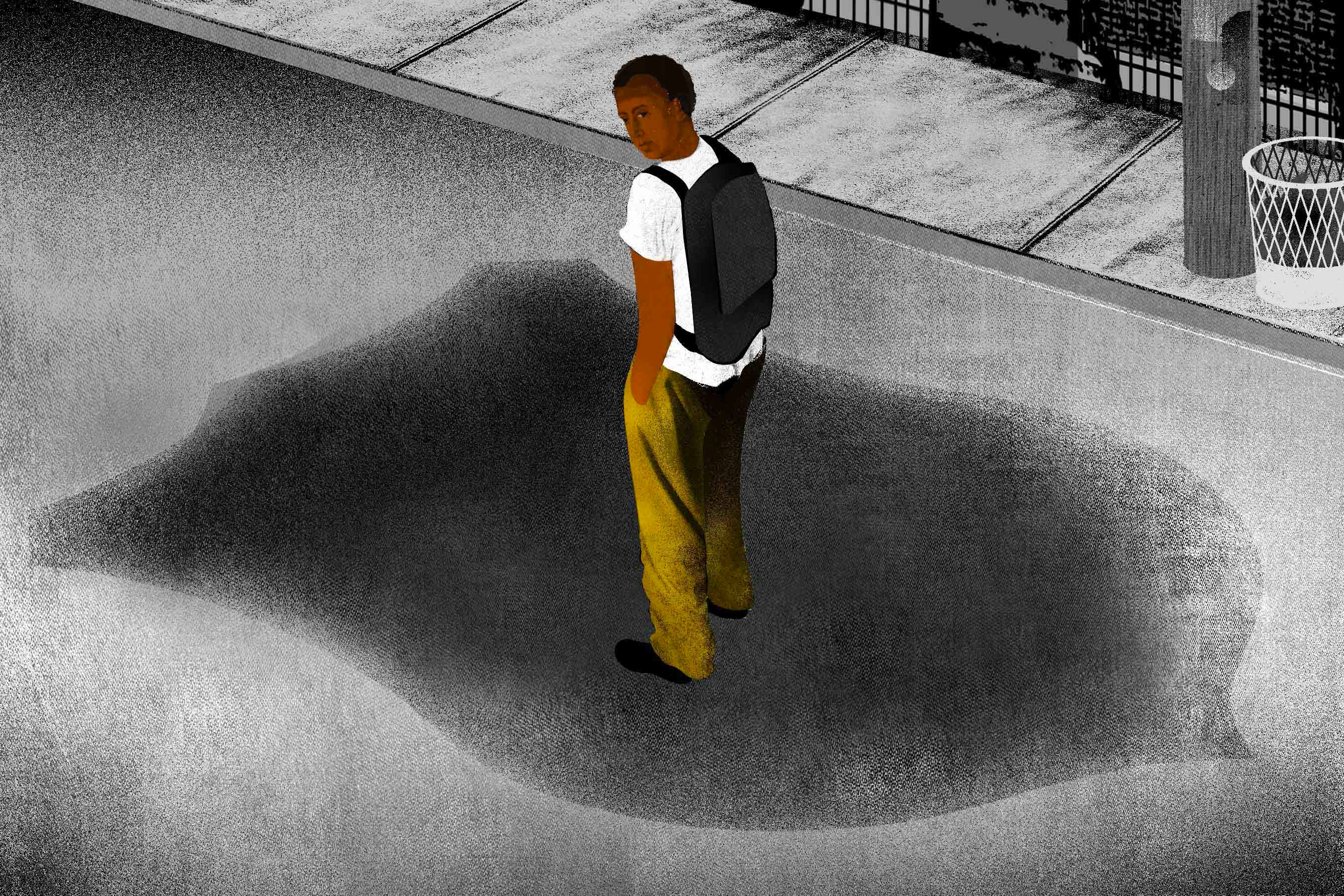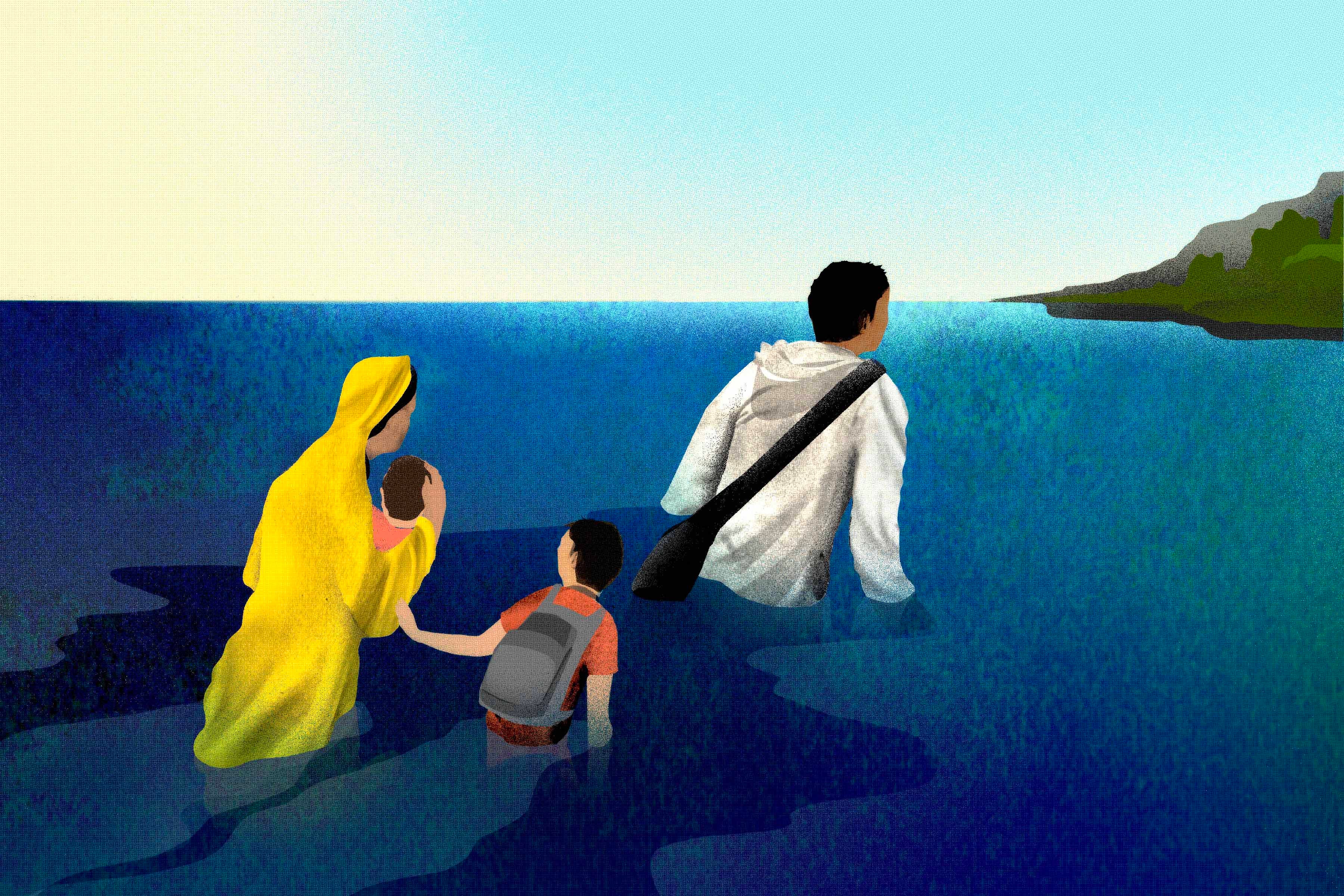Egyptians in 2020 continued to live under the harsh authoritarian grip of President Abdel Fattah al-Sisi’s government. Tens of thousands of government critics, including journalists and human rights defenders, remain imprisoned on politically motivated charges, many in lengthy pretrial detention. Authorities frequently used terrorism charges against peaceful activists and harassed and detained relatives of dissidents abroad.
Authorities used vague “morality” charges to prosecute female social media influencers for posts of themselves, as well as gang-rape witnesses following reporting of sexual assault cases online. Media close to the government smeared rape witnesses by publishing private photos and videos online without their consent.
The Covid-19 outbreak exacerbated dire detention conditions and dozens of persons detained on political grounds died in custody, including at least 14 who likely died of Covid-19 complications between March and July. Authorities arrested health workers who criticized the government’s Covid-19 response.
Security forces continued to operate with impunity in war-torn North Sinai.
The government closed schools nationwide from mid-March until they reopened with a reduced schedule in mid-October, affecting the education of an estimated 20 million students.
Police and Security Forces Abuses
The Interior Ministry’s security forces and National Security Agency (NSA) forcibly disappeared, arbitrarily arrested, and tortured dissidents, including children. In April, authorities disappeared for days Marwa Arafa and Kholoud Said, then detained the two women on unsubstantiated charges of joining a terrorist group and spreading false news. The NSA arrested at least 10 health workers for criticizing the government response to Covid-19 including the lack of protective equipment and testing. In late May authorities arrested and held incommunicado journalist Shaima’ Samy for charges of “spreading false news.”
In June, the NSA arrested Sana’ Saif when she tried to report being physically assaulted outside Tora Prison where her brother, jailed activist Alaa Abdel Fattah, was being held.
The Interior Ministry subjected the families of dissidents abroad to collective punishment, including arrests and prosecutions. In June, security forces arrested five cousins of Mohamed Soltan, an American-Egyptian rights defender. The raids were apparently in reprisal for Soltan filing suit in a US court in June under the Torture Victim Protection Act against former Prime Minister Hazem al-Beblawy, related to Soltan’s 2013 arrest and torture during nearly two years of detention.
In North Sinai, armed conflict between government forces, particularly the military, and the local Islamic State affiliate Wilayat Sina’ entered its eighth year. The army prohibited access to journalists and other observers and banned independent reporting. The army continued to demolish homes and forcibly displace thousands of residents, often without offering compensation or alternative housing.
Prison Conditions and Deaths in Custody
The Covid-19 outbreak, which began in Egypt in February, worsened already abysmal detention conditions. Authorities imposed a comprehensive information blackout on detention sites and ended visits, including by lawyers, from March 10 to late August, without offering alternatives such as video or phone calls. Since late August, families could pre-book visits by phone but were limited to one relative once per month, for 20 minutes.
According to credible human rights and media reports, dozens of prisoners in political cases died in detention in 2020 apparently due to inadequate medical care. In December 2019, Mariam Salem, 32, died in al-Qanater prison after authorities withheld live-saving medical treatment, including for a liver condition. On January 14, Mostafa Kassem, a 54-year-old Egyptian-American who was diabetic with a heart condition, died in Tora Leman Prison. He had been on hunger strike from early January to protest his 15-year sentence following an unfair mass trial of over 700 defendants. In May, Shadi Habash, a 24-year-old filmmaker imprisoned for directing a music video mocking al-Sisi, died in Tora Tahqiq Prison after he received no meaningful treatment for alcohol intoxication. In August, Essam al-Erian, 66, a senior Muslim Brotherhood leader, died in Tora’s Scorpion Prison after spending seven years in near-total isolation. In the first week of September, five detainees died in different prisons, including Amr Abu Khalil and Ahmed Abdelnabi Mahmoud, after they spent many months in detention without trial. Authorities denied both access to adequate medical care.
According to the Committee for Justice, a Geneva-based human rights group, the number of detainees who died in custody between June 2013 and December 2019 could be as high as 958. Human Rights Watch documented several suspected Covid-19 outbreaks in Egyptian prisons and police stations between March and July. At least 14 prisoners during that time likely died of Covid-19 complications. Only nine had been transferred to hospitals, in some cases just hours before they died.
Egypt’s overcrowded detention sites make social distancing impossible. Between March and late July, the government said it released about 19,615 prisoners. Those releases excluded people detained or prosecuted for political dissent and were insufficient to ease overcrowding.
Fair Trials, Due Process, and the Death Penalty
Judges and prosecutors kept thousands of people in pretrial detention, often solely for exercising their rights to peaceful assembly and free expression, and many beyond the two-year limit Egyptian law provides. Former presidential candidate Abd al-Moneim Abu al-Fotouh, arrested in February 2018 ahead of that year’s presidential vote, was “recycled” into a new case just days before his detention would have reached the two-year limit in February 2020.
Between mid-March and mid-August, security and judicial authorities used the Covid-19 pandemic as a pretext to effectively preclude even a pretense of detention renewal hearings, in violation of Egyptian law, as well as regional African and international human rights treaties. Authorities have held hundreds, and most likely thousands, without even a pretense of judicial review. Prior to this, judges and prosecutors frequently deprived lawyers and detainees of a meaningful chance to present defense or review any purported evidence.
Egyptian courts continued to impose the death penalty for a wide range of crimes, including cases of alleged political violence and terrorism in which defendants’ claims of forced disappearance and torture almost always went uninvestigated by judges. According to the Egyptian Front for Human Rights, an independent Czech-based group, during the first half of 2020 Egyptian military and civilian courts issued 171 death sentences and upheld the sentences of 10 others, including 7 in a political case. From January to late October, authorities executed at least 83 persons, 25 of whom were charged in cases involving political violence, according to numbers compiled by Human Rights Watch and the Egyptian Front for Human Rights.
Freedom of Association and Attacks on Human Rights Defenders
Authorities continued to severely curtail space for civil society groups and target human rights defenders.
At time of writing, the government has not issued implementing regulations for the draconian NGO law al-Sisi approved in August 2019 despite the requirement that it do so within six months of approving the law, and the stipulation in the new law that existing organizations must re-register within one year. The law prohibits a wide range of activities, such as “conduct opinion polls and publish or make their results available or conduct field research or disclose their results” without government approval. The law allows authorities to dissolve organizations for a wide range of “violations” and imposes fines of up to one million Egyptian pounds (US$60,000) for organizations that operate without a license or send or receive funds without government approval.
In December 2019, persons believed to be working under the direction of the National Security Agency physically assaulted human rights lawyer Gamal Eid for the second time in two months. Authorities failed to hold anyone accountable.
On February 7, Egyptian authorities detained Patrick George Zaki, a researcher with the Egyptian Initiative for Personal Rights (EIPR), and held him incommunicado for 24 hours, during which time he was allegedly tortured, including with electric shocks. Zaki has been in pretrial detention since then facing charges that include “calling for protests without permission,” “spreading false news,” and “incitement to commit violence and terrorist crimes.”
Prosecutors and judges have regularly renewed the pretrial detention of Ibrahim Ezz el-Din, a housing rights researcher with the Egyptian Commission for Rights and Freedoms (ECRF), since November 2019. Security agencies had forcibly disappeared Ezz el-Din for over five months before the Supreme State Security Prosecution issued his official detention order. ECRF lawyers told Human Rights Watch that officers physically and psychologically tortured him, including with electric shocks, while questioning him about his activism.
In August, an Egyptian court sentenced veteran human rights defender Baheyeddin Hassan to 15 years in prison in absentia for tweets criticizing the government. A court had sentenced him in September 2019 to three years in prison in absentia for criticizing Egypt’s prosecution office.
Authorities continued to arbitrarily detain without trial other human rights lawyers and defenders, including Mahinour al-Masry and Mohamed al-Baqer, whom security forces arrested in September 2019 when they were at the prosecutors’ office in Cairo to defend other detainees.
In July, a Cairo criminal court rejected a request to lift the five-year-long travel bans imposed on 14 leading human rights defenders including Mohamed Zarea, Hossam Bahgat, and Mozn Hassan, 2020 winner of the Hrant Dink Award. The 14 are among more than 30 human rights defenders who remained banned from leaving the country, most in connection with the protracted Case 173 of 2011 investigation, known as the “foreign funding case” in which authorities also have frozen the assets of leading organizations and defenders.
In November, National Security Agency officers arrested three directors of the Egyptian Initiative for Personal Rights (EIPR): Gasser Abdel Razeq, Karim Ennarah and Mohamed Basheer. Under international pressure, authorities released them in early December but did not drop the charges, including for alleged terrorism-related offences, and a terrorism court ordered their personal assets frozen.
Freedom of Assembly and Expression
The government continued to criminalize peaceful assembly and punish peaceful critics. In late September and early October, authorities arrested nearly 1,000 protesters and bystanders before and after scattered anti-government protests in towns and villages in 21 governorates, according to the Egyptian Commission for Rights and Freedoms. Arrests included at least 71 children, some as young as 13. In March, authorities arrested the academic and activist Laila Soueif, her sister, the novelist Ahdaf Soueif, her daughter, the prominent activist Mona Seif, and political scientist Rabab el-Mahdi for protesting peacefully for the release of unjustly detained prisoners over coronavirus fears.
Egypt continued to detain dozens of politicians and activists, including Ziad al-Elaimy and Hossam Mo’nis, for planning a new electoral coalition to contest the 2020 parliamentary elections. In late June, Interior Ministry forces besieged the doctors’ syndicate building and forced its members to cancel a press conference to address government harassment of doctors in connection with Covid-19. Authorities arrested at least 10 healthcare professionals who challenged the official narrative on the pandemic or criticized the lack of equipment at work.
Authorities continued to silence journalists, bloggers, and critics on social media amid escalating use of the repressive 2018 cybercrimes law and have blocked hundreds of news and human rights websites without judicial authorization since 2017. Journalists Solafa Magdy, Hossam al-Sayed, and Mohamed Salah remain in pretrial detention on charges of “joining a terrorist group” and “spreading false news” since November 2019. According to international groups monitoring press freedoms, such as the Committee to Protect Journalists and the International Press Institute, the number of journalists behind bars in Egypt at a given time in 2020 was between 30 and 60, one of the highest in the world.
Freedom of Belief and Religion
On June 21, an appeals court in Alexandria upheld the three-year prison sentence of blogger and activist Anas Hassan and a fine of 300,000 EGP ($19,000) for “insulting religion” and “misusing social media.” According to the EIPR, Hassan was prosecuted for managing a Facebook page called "The Egyptian Atheists” that authorities said published “atheistic ideas” and "criticism of the divinely revealed religions.”
A week later, a State Security Misdemeanor Court in Sharqia Governorate sentenced two young men to a year in jail for promoting the Shi`a doctrine of Islam. State Security court decisions cannot be appealed.
Restrictions on church building remain largely in place. Four years after the issuance of Law 80 of 2016 on the construction of churches, the government has only conditionally legalized 1,638 churches that were operating without official permits, roughly 25 percent of church buildings that applied for legal status.
Women’s Rights, Gender Identity, Sexual Orientation
Egyptian authorities carried out an extensive campaign of arrests and prosecutions against women social media influencers, in violation of their rights to privacy, freedom of expression, and non-discrimination. Between April and time of writing, authorities arrested at least 15 people, including 11 women and a 17-year-old girl, on vague charges of violating “public morals” and “undermining family values.” Courts sentenced five of them to two and six years in jail. The prosecutions are based on videos and photos the women shared on social media apps showing themselves dancing and singing. Security forces arrested the 17-year-old girl after she published a video saying she was raped and assaulted by a group of men.
The National Security Agency in August 2020 arrested four witnesses to a high-profile 2014 gang rape case (known as the Fairmont case), and two of their acquaintances, weeks after independent women’s rights activists exposed the case online. Three witnesses were shortly released but continued to face prosecution. Authorities had encouraged witnesses to the rape to come forward, but then accused them of consensual same-sex sexual conduct, “inciting debauchery,” personal drug use, and “misuse of social media.” According to sources, the authorities attempted to force the witnesses to change their testimonies and ill-treated them in detention. They also reportedly forced one woman to undergo a “virginity test” and two men arrested in the case to undergo anal examinations. These are cruel and degrading practices that can rise to the level of torture. Pro-government media subjected them to a coordinated smear campaign.
The Egyptian #MeToo movement became re-energized in 2020, as victims and survivors of sexual violence posted their accounts online, leading to a few arrests by authorities.
On September 5, al-Sisi approved amendments to the Criminal Procedural Code to ensure anonymity and protect the identities of victims. But lawyers voiced concerns that the amendments did not provide protection for witnesses. Serious gaps remain in Egypt’s laws relating to sexual violence and treatment of survivors including a weak definition of rape and lack of a comprehensive violence against women law.
Egypt continued to arbitrarily arrest and detain people based on their sexual orientation or gender identity and subjected them to torture and ill-treatment in detention, including forced anal examinations.
In June, Sarah Hegazy, an LGBT rights and feminist activist, took her own life in exile in Canada. Hegazy left Egypt out of fear for her life after authorities detained and subjected her to ill-treatment in prison for three months in 2017.
In March, during its third Universal Periodic Review at the UN Human Rights Council, Egypt rejected recommendations by several states to end arrests and discrimination based on sexual orientation and gender identity. Egypt responded that it “does not recognize the terms mentioned in this recommendation.”
For several months, Egyptians living with HIV, including gay men, faced obstacles to accessing HIV treatment as they feared retrieving their medication from fever hospitals, the only centers where people living with HIV can access lifesaving medications after the government designated them as treatment centers for Covid-19.
Key International Actors
Despite its disastrous record of human rights violations, Egypt’s regional and international partners did not go beyond occasional, weak expressions of concern and largely failed to condition security assistance on accountability or improvement in the human rights situation.
In 2020, the US Congress again appropriated to Egypt $1.3 billion in foreign military financing. In May, the Defense Security Cooperation Agency notified the US Congress of an approved sale to Egypt of AH-64E Apache attack helicopters, worth $2.3 billion. Following the death of Egyptian-American citizen Mostafa Kassem in Egyptian custody in January, members of Congress sent multiple letters expressing concern regarding arbitrary detention, the targeting of American citizens or the families of US citizens, and increased risks of Covid-19 in overcrowded prisons.
The UK’s relationship with Egypt privileged security, trade, environmental, and other cooperation over pressure on Cairo to tackle its grave record of human rights abuse.
Divisions among European Union member states prevented the bloc from adopting effective measures to address the human rights crisis in Egypt. The EU, France, and Italy prioritized cooperation with Egypt on issues including the Libya crisis and migration management, limiting their public criticism to improved statements at the UN Human Rights Council, which were stronger than previous years.
EU member states have continued to export arms and surveillance technology to Egypt, ignoring calls by the European Parliament and contravening the EU pledge in 2013, as well as in disregard for the EU common position on military exports. In June, Italy announced it was negotiating an €11 billion (around $13 billion) arms deal with Cairo—the largest arms transfer ever for both countries—despite lack of progress in the investigations for the brutal torture and murder in Cairo in 2016 of the Italian student Giulio Regeni, likely at the hand of Egypt’s security forces.
The International Monetary Fund (IMF) approved two loans totaling $8 billion with weak governance conditions that do not address human rights and transparency concerns, such as the independence of Egypt’s main anti-corruption entity, the Central Auditing Agency. The World Bank approved a $50 million Covid-19 health project that did not take into account reprisals against healthcare workers.
